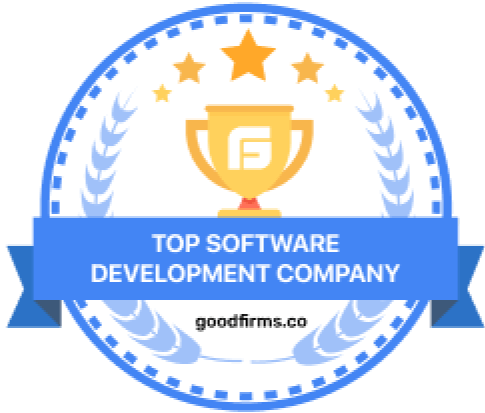The technology world is alive with innovation, and AI tech is driving this transformation. From startups to global corporations, businesses are eager to adopt upcoming AI technologies to stay competitive, innovate quickly, and deliver exceptional customer value. But here’s the critical question: Is your tech business truly prepared for AI? Being AI-ready goes beyond adopting new tools or hiring data scientists—it requires aligning your strategy, infrastructure, and culture for an AI-driven future. In this detailed guide, we’ll explore what it means to be AI-ready, share real-world use cases, and provide actionable steps to help companies unlock the potential of artificial intelligence. Let’s dive into the world of AI tech and see if your business is ready for what’s next!
What Does It Mean to Be AI-Ready?
Being AI-ready means your business is equipped to integrate and scale AI tech solutions effectively. It’s not just about having advanced algorithms or cloud resources—it’s a comprehensive approach involving data, infrastructure, talent, and strategy. Here’s what’s needed:
-
Data Readiness: AI relies on clean, structured, and accessible data. IBM reports that 80% of data preparation time is spent on cleaning and organizing (source: IBM Data Science Report 2023).
-
Infrastructure: Powerful computing resources, whether on-premises or in the cloud, are vital for training and deploying AI models.
-
Talent and Skills: Your team needs AI literacy, from developers to leadership, to leverage upcoming AI technologies.
-
Strategic Vision: AI adoption should align with your business objectives, such as enhancing customer experience or streamlining operations.
-
Ethical Framework: Responsible AI practices ensure trust and compliance with regulations like GDPR or CCPA.
If any of these elements are missing, your business may struggle to embrace AI fully. Let’s examine the key areas and how ai tech companies are preparing.
Assessing Your AI Tech Readiness: Where Are You Now?
Before adopting AI, you need to evaluate your current capabilities. Here are the critical areas to assess and why they matter for AI tech integration.
Data: The Foundation of AI Tech
Data is the cornerstone of AI tech. Without high-quality, organised data, even the best models will underperform. For instance, a retailer implementing AI-driven product recommendations needs historical sales data, customer behaviour, and real-time inventory. Gartner’s 2024 report notes that 60% of businesses fail to scale AI due to poor data quality (source: Gartner AI Trends 2024).
Real-Time Example: Walmart uses AI to optimise its supply chain, leveraging vast datasets from sales, weather, and logistics. By investing in data lakes and real-time analytics, Walmart reduced stockouts by 30% (source: Forbes Retail AI 2024). To prepare for AI, audit your data pipelines to ensure they’re scalable and secure.
Infrastructure: Scaling AI Tech
AI models, particularly those for deep learning, require substantial computational power. Whether training a generative AI model or deploying a chatbot, your infrastructure must support the demand. Cloud platforms like AWS, Azure, and Google Cloud provide AI-optimised solutions, though on-premises GPU setups can work for specific needs.
Real-Time Example: NVIDIA’s DGX systems power AI training for companies like Tesla, speeding up autonomous driving algorithms. Tesla’s custom AI hardware has reduced training time by 50% (source: TechCrunch AI Hardware 2023). Evaluate your compute resources and consider hybrid cloud options to balance cost and performance.
Talent: Developing an AI Tech Team
Your workforce is the link between AI tech and business success. While not everyone needs to be a data scientist, basic AI literacy is essential. Developers should be familiar with frameworks like TensorFlow or PyTorch, and executives should understand AI’s strategic value.
Use Case: A fintech startup trained its developers in upcoming AI technologies like natural language processing to create a fraud detection system. This upskilling effort reduced false positives by 25% and attracted new clients (source: FinTech Magazine 2024). Invest in training and consider partnering with AI companies for specialized expertise.
Strategy: Aligning AI Tech with Objectives
AI must serve your business goals, whether it’s automating customer support or optimizing manufacturing. A clear, measurable AI strategy is essential for success.
Use Case: Coca-Cola used AI to personalize marketing, analyzing consumer preferences to tailor ads. This boosted campaign engagement by 20% (source: Marketing Week AI 2023). Identify your AI use cases and prioritize those with the greatest return on investment.
Real-World Use Cases of AI Tech in Action
To see AI-readiness in practice, let’s explore how these companies across industries are using AI tech to fuel growth and innovation.
1. Healthcare: Transforming Diagnostics with AI Tech
AI is revolutionizing healthcare by enabling faster, more accurate diagnostics. AI-ready hospitals integrate data from electronic health records, imaging systems, and wearables to power predictive models.
Real-Time Example: Mayo Clinic uses AI to analyze medical images, detecting early cancer signs with 95% accuracy, sometimes outperforming human radiologists (source: HealthTech Magazine 2024). By ensuring data interoperability and cloud infrastructure, Mayo Clinic improved patient outcomes.
2. E-Commerce: Personalizing Shopping Experiences
E-commerce companies use AI tech to deliver tailored customer experiences. AI-ready retailers combine customer data, browsing history, and real-time behavior to recommend products and optimize pricing.
Real-Time Example: Amazon’s AI-powered recommendation engine drives 35% of its revenue. By building robust data pipelines and custom models, Amazon keeps its AI systems learning (source: CNBC Amazon AI 2023). E-commerce businesses can prepare by unifying data sources and adopting scalable AI platforms.
3. Manufacturing: Streamlining Operations with AI Tech
Manufacturers leverage AI tech for predictive maintenance, quality control, and supply chain efficiency. AI-ready factories integrate IoT sensors, ERP systems, and AI models to reduce downtime.
Real-Time Example: Siemens uses AI to predict equipment failures, cutting unplanned downtime by 40%. By equipping factories with IoT and cloud-based AI, Siemens leads in smart manufacturing (source: Industry Week AI 2024). Manufacturers can prepare by modernizing legacy systems and adopting upcoming AI technologies.
4. Financial Services: Boosting Security and Efficiency
Banks and fintechs use AI for fraud detection, compliance automation, and personalized financial advice. AI-ready financial institutions invest in secure data platforms and real-time analytics.
Real-Time Example: JPMorgan Chase’s COiN platform uses NLP to analyze legal documents, saving 360,000 hours of manual work yearly (source: Banking Dive AI 2023). By fostering an AI-ready culture and upskilling staff, JPMorgan stays ahead.
Challenges to Achieving AI-Readiness
While AI tech offers immense benefits, becoming AI-ready has its challenges. Here’s how ai tech companies can address them.
Data Silos and Quality
Fragmented data across departments can hinder AI projects. Invest in data integration platforms and establish governance policies to ensure consistency and accessibility.
Talent Shortages
The demand for AI skills exceeds supply. LinkedIn’s 2024 report highlighted a 74% increase in demand for AI expertise (source: LinkedIn Workforce Report 2024). Partner with ai tech companies or hire consultants while training your team.
Infrastructure Costs
Training AI models can be costly, especially for smaller businesses. Use cloud-based AI services like Google Cloud AI or AWS SageMaker to minimize upfront expenses.
Ethical and Regulatory Issues
AI raises concerns about bias, privacy, and accountability. Develop an ethical AI framework and ensure compliance to maintain customer trust.
Steps to Become AI-Ready
Ready to embrace AI tech? Here are practical steps to build an AI-ready foundation:
-
Conduct an AI Readiness Assessment: Evaluate your data, infrastructure, and talent to identify gaps.
-
Define Clear Use Cases: Prioritize high-impact AI applications, such as automation or predictive analytics.
-
Invest in Data Infrastructure: Create scalable data pipelines and ensure data quality.
-
Upskill Your Team: Provide training in upcoming AI technologies and encourage continuous learning.
-
Partner with Experts: Work with AI companies to accelerate adoption and avoid pitfalls.
-
Start Small, Scale Fast: Pilot AI projects, measure outcomes, and expand successful initiatives.
The Future of AI Tech: What Lies Ahead?
The AI tech landscape is evolving rapidly. Upcoming AI technologies like generative AI, edge AI, and quantum computing will reshape possibilities. Gartner predicts that by 2027, 70% of enterprises will use generative AI for content, code, and designs (source: Gartner AI Forecast 2024). To stay competitive, ai tech companies must experiment with new tools and strategies.
Why Choose Ajackus for AI Tech Transformation?
Becoming AI-ready is a journey, and you don’t have to navigate it alone. Partnering with a trusted AI tech provider like Ajackus can accelerate your success. With expertise in upcoming AI technologies, Ajackus delivers scalable, innovative AI solutions tailored to your needs. Whether you’re automating processes, enhancing customer experiences, or exploring new opportunities, Ajackus is your partner for growth.
Ready to make your business AI-ready? Contact Ajackus today and discover how AI can drive your success! Get in touch now.
Conclusion
The revolution is in full swing, and the question isn’t whether your business should adopt AI—it’s whether you’re prepared to do it effectively. From healthcare to manufacturing, companies are using upcoming AI technologies to innovate and thrive. By assessing your data, infrastructure, talent, and strategy, you can build a foundation for AI success. Don’t let challenges like data silos or talent shortages slow you down—take action now and collaborate with experts to master the AI tech landscape.
The future belongs to businesses that embrace AI tech with purpose and vision. Is your tech business ready to lead? Reach out to Ajackus and start your AI journey today!

Start a Project with Ajackus

































